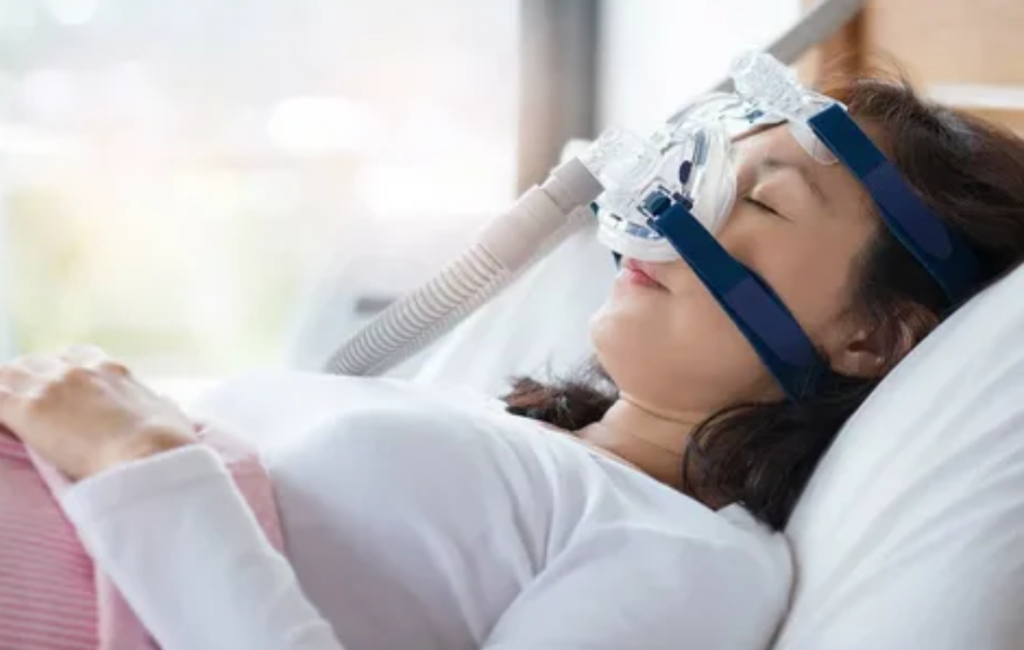
Sleep apnea is a prevalent sleep disorder impacting numerous individuals globally. It is characterized by pauses in breathing or shallow breaths during sleep, leading to disrupted sleep patterns and often causing daytime fatigue and other health issues. One of the most effective treatments for sleep apnea is Continuous Positive Airway Pressure (CPAP) therapy, which plays a crucial role in managing this condition.
Understanding Sleep Apnea
Before delving into CPAP therapy, it’s important to understand what sleep apnea entails. There are two main types: obstructive sleep apnea (OSA) and central sleep apnea (CSA). OSA, the more prevalent type, occurs when the throat muscles relax excessively during sleep, obstructing the airway. CSA, less common, involves the brain failing to send signals to the muscles that control breathing. Both types result in disrupted sleep, decreased oxygen levels, and potential health complications if left untreated.
What is CPAP Therapy?
CPAP therapy involves the use of a CPAP machine, which delivers a continuous flow of air through a mask worn over the nose or both the nose and mouth while sleeping. This airflow helps keep the airway open, preventing pauses in breathing and allowing uninterrupted sleep. The CPAP machine is set to a prescribed pressure level by a sleep specialist based on the severity of the patient’s sleep apnea.
How CPAP Therapy Works
The CPAP machine works by generating air pressure that is greater than that of the surrounding air. This pressure acts as a splint to keep the throat muscles from collapsing and blocking the airway. By maintaining a constant flow of air, CPAP therapy ensures that the airway remains open throughout the night, allowing for normal breathing patterns and uninterrupted sleep cycles.
Benefits of CPAP Therapy
- Improved Sleep Quality: CPAP therapy helps maintain normal sleep patterns, reducing disruptions caused by breathing pauses.
- Reduced Daytime Fatigue: Patients often experience increased daytime alertness and improved cognitive function due to better-quality sleep.
- Lower Risk of Health Complications: Effective treatment of sleep apnea with CPAP therapy can reduce the risk of cardiovascular diseases, hypertension, and other related health issues.
- Enhanced Quality of Life: Patients report better overall well-being and mood, as sleep apnea symptoms like fatigue and irritability diminish with regular CPAP use.
Adapting to CPAP Therapy
Adjusting to CPAP therapy may take time and patience. Initially, some individuals may find wearing the mask uncomfortable or experience minor side effects such as dryness of the nose or throat. However, with proper adjustments and support from healthcare providers, most patients adapt successfully to CPAP therapy and experience its full benefits.
Long-Term Management and Monitoring
Regular follow-up appointments with a sleep specialist are essential for long-term management of sleep apnea with CPAP therapy. These appointments ensure that the CPAP machine settings are appropriate and effective for the patient’s current condition. Adjustments to the mask fit or pressure settings may be necessary over time to optimize therapy outcomes.
Summary
CPAP therapy is a cornerstone in managing sleep apnea, offering substantial benefits in sleep quality, daytime alertness, and overall health. For individuals struggling with sleep apnea, seeking treatment at the Best Sleep Apnea Clinic in Pune, led by Dr. Yogesh Agrawal in Wakad, Pune, ensures comprehensive care and optimal outcomes in managing this challenging condition.




